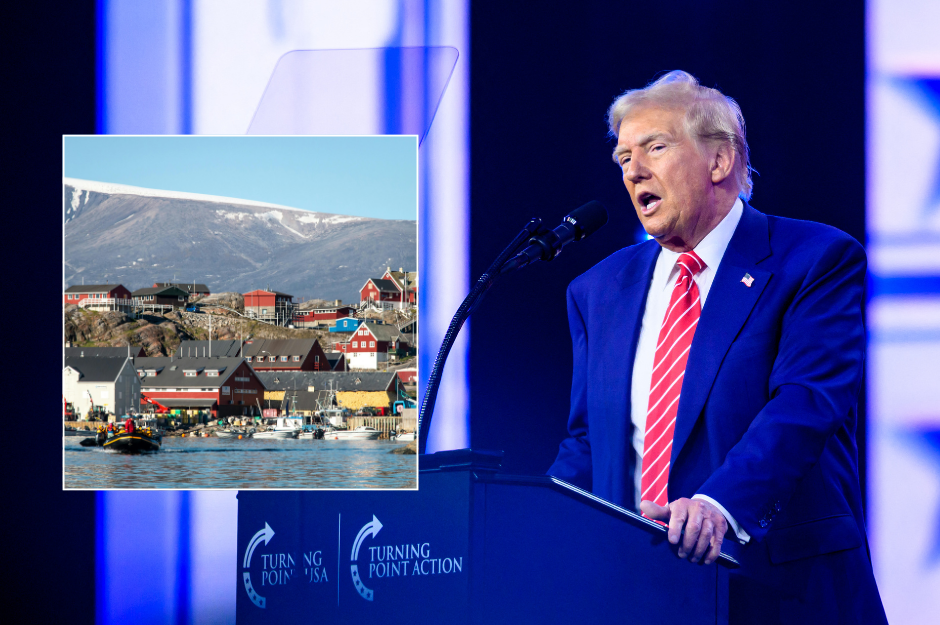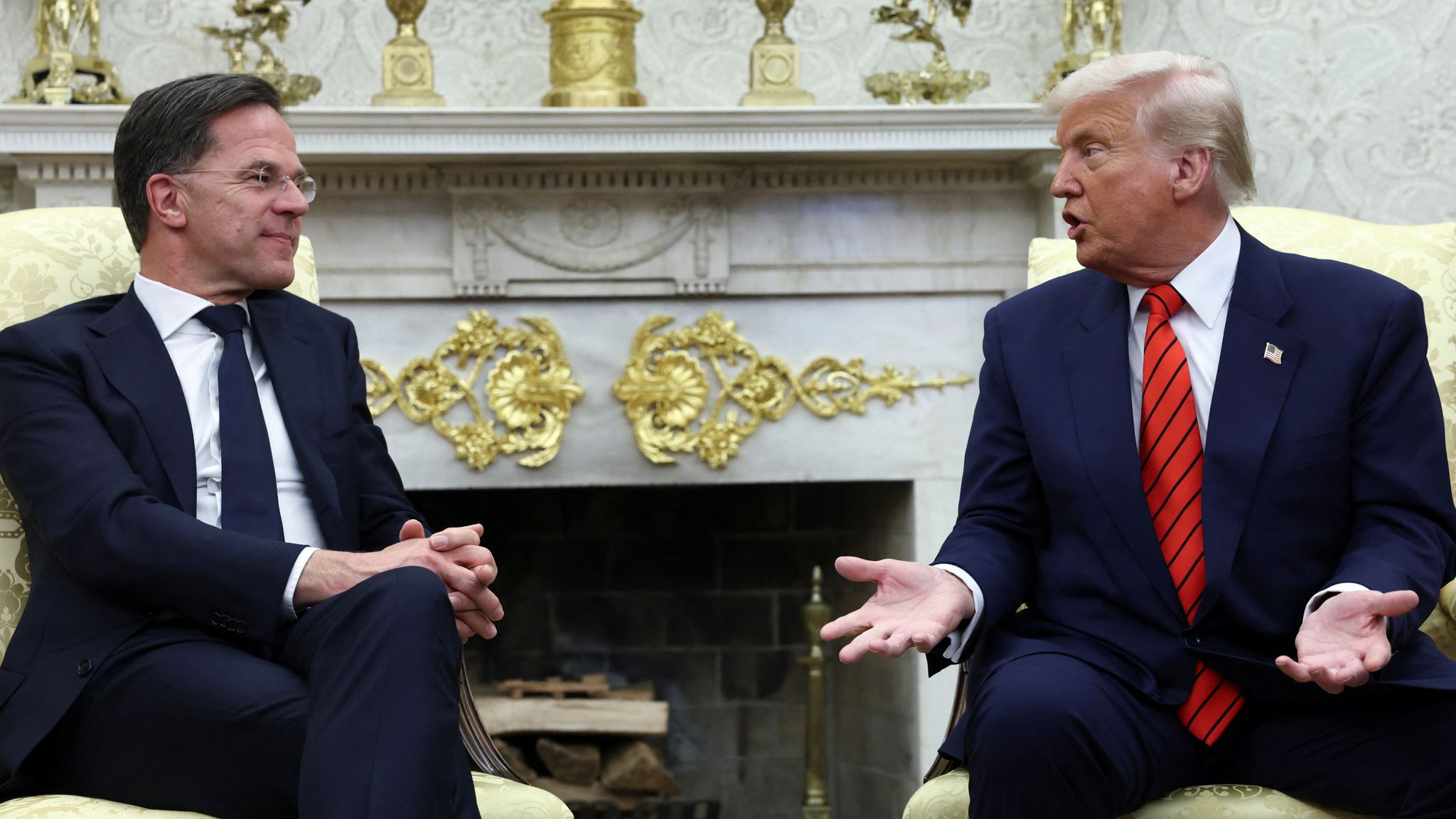Trump's Greenland Ambitions: Will The US Annex It?
Could a nation's destiny truly be redrawn on a whim? The audacious assertion by former U.S. President Donald Trump that the United States would annex Greenland has ignited a firestorm of geopolitical debate and raised fundamental questions about sovereignty, national ambition, and the enduring allure of strategic land grabs.
The seeds of this controversy were sown during a meeting in the Oval Office. President Trump, in conversation with NATO Secretary General Mark Rutte, confidently declared his conviction that Greenland would eventually become part of the United States. This pronouncement, far from being a casual aside, underscored a persistent focus on securing the strategically vital island, a landmass of immense importance due to its geographical location, its vast resources, and its potential military significance.
Despite Denmark's resolute rejection of the proposition, Trump's conviction remained unshaken. He persisted in his belief that the United States would, at some point, successfully annex Greenland, a stance that has sent shockwaves through diplomatic circles and spurred an intense reassessment of American foreign policy aims. Greenlands Prime Minister, Mte B. Egede, has countered Trumps vision with a firm defense of his nation's independence, stating that Greenland would remain independent and that its people had no desire to become American citizens. These opposing viewpoints frame the central conflict of the ongoing discussion.
The significance of the matter is undeniable, as reflected in analyses that have assigned it a score of 3.2, placing the news within the top 21% of articles examined. The focus is very much on Greenland's sovereign status and its own right to self-determination.
At the core of the issue lies a deep interest in the Arctic region. Trump's vision extends beyond merely acquiring Greenland. Nearly 40% of Canadas landmass is located within the Arctic circle. The idea that the US might integrate Canada is present too.
The ramifications of such actions extend to international relations and the shifting dynamics of world power. The U.S. could potentially solidify its control of global trade and Arctic geopolitics. The prize at stake is significantthe potential for dominance in a strategically critical region, and the accompanying economic and military advantages. It is vital to recognise the ambition involved.
Trump further fueled the debate by indicating that he could make Greenland's approximately 57,000 inhabitants wealthy if they opted to align with the United States. The offer underscores the economic incentives that could be deployed in pursuit of annexation, a strategy that has, at times, proven successful in similar historical instances. The implications of these actions will be critical to the future of the island.
The strategic importance of Greenland has been an ongoing topic of discussion. This matter has been a constant point of conversation since his time in office. Glenn even examined the visit by Donald Trump Jr. to the island, demonstrating the personal and familial interest in the region.
Trump's focus on the island is not new. The subject was also brought up during a meeting with NATO chief Mark Rutte. Their discussion centred around the security implications of Greenland, with Trump again promoting the idea of US annexation, citing security considerations.
The discussion encompasses concerns about U.S. foreign policy and the potential for forceful action. The first concept is to make Canada the 51st state of the United States, utilizing economic influence instead of military force. The second is the idea of taking Greenland from Denmark, potentially using force to do so.
The reactions to these statements are not always positive. Trump has faced considerable criticism but remains steadfast in his conviction that the US will secure Greenland. He expressed his view that Greenland will become American soil before 2029.
His confidence may rest on the belief that he can sway political will to match his ambitions. Military experts have assessed Greenland's bases as a check against Russia's moves in the north, a factor that Trump frequently highlights. Such a move could be the first U.S. land acquisition in over a century.
Trump's remarks regarding Greenland were made in the context of discussions concerning NATO.
Intelligence analysts suggest that the administration could employ a disinformation campaign, potentially supported by figures like Elon Musk, to sway public opinion in Greenland. The goal would be to sow internal divisions, create a rationale for US intervention, and ultimately secure access to Greenlands mineral wealth. This tactic, if employed, would represent a more comprehensive approach to the objective, combining political manipulation and economic incentives with elements of strategic deception.
When asked what his vision was for the potential annexation of Greenland, Trump responded, "Yeah, well, I think itll happen," addressing the NATO secretary. His statement underscores the seriousness of the prospect.
Addressing Pentagon chief Pete Hegseth with a smile, Trump commented, "But we have bases, and we have quite a few soldiers in Greenland." These remarks elicited an immediate reaction from Greenland.
| Topic | Geopolitical Implications of U.S. Annexation of Greenland |
| Geopolitical Context |
|
| Key Players Involved |
|
| Strategic Importance of Greenland |
|
| Potential Strategies of the U.S. |
|
| Potential Consequences |
|
| Reference Website | U.S. Department of State (for official statements on U.S. foreign policy) |


